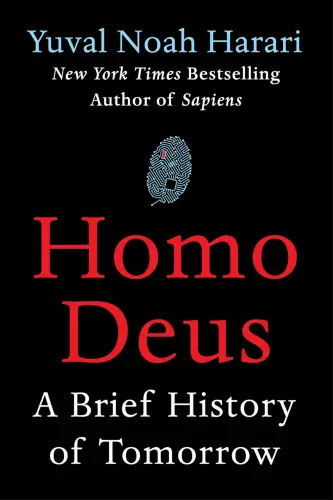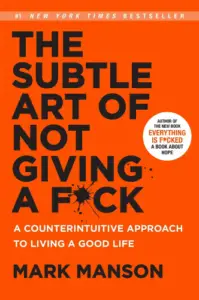Homo Deus: A Brief History of Tomorrow
Book Author: Yuval Noah Harari
Summary reviewed by:
Terrence Timmons
Terrence Timmons
Analyst
Bachelor of Arts (BA), University Of California, Santa Barbara 2019
With over 4 years of experience as an analyst. Terrence Timmons is committed to analyzing summaries without compromising on quality.
Homo Deus: A Brief History of Tomorrow: Summary
In a world teetering on the brink of unprecedented transformations, "Homo Deus: A Brief History of Tomorrow" dares to forecast the future of humankind. Yuval Noah Harari, with his signature blend of history, science, and philosophy, presents an audacious narrative about the next stage of human evolution. The main thesis of the book pivots on the idea that having managed to curb famine, plague, and war, humanity will next seek to upgrade humans into gods, aiming to achieve happiness, immortality, and divinity, not through external deities, but through the very fabric of our biological and technological advancement.
Harari embarks on a journey that starts with the achievements of the human species up to this point—how we've become the dominant species on Earth—and uses this as a springboard to explore what our future might hold. He posits that as technology becomes increasingly sophisticated, it will allow us to surpass our biological limitations, leading to the creation of Homo Deus, a new human god-like species.
The book delves into the ethical implications and potential pitfalls of such advancements. Harari challenges readers to consider the value of individual consciousness in a future where AI and biotechnology could make human decision-making obsolete. He paints a vivid picture of a world where algorithms know us better than we know ourselves, raising questions about freedom and individuality.
Harari's exploration does not stop at technological advancements; it also examines the shifting sands of human society. He predicts the rise of a 'useless class' as automation and AI render many professions obsolete and explores the potential for new social stratifications based on access to technology and enhancements.
In "Homo Deus," Harari has crafted a compelling forecast of tomorrow, inviting us to reflect on the moral and existential questions of our future as a species. The book is a thought-provoking journey through the possibilities of the next step in our evolution, questioning whether our quest for godhood will lead to utopia or oblivion.
Homo Deus: A Brief History of Tomorrow: Genres
Futurism
Philosophy
Science
History
Homo Deus: A Brief History of Tomorrow: Themes
The Future of Human Evolution: Harari explores the idea that humans will seek to become Homo Deus, entities with god-like powers, through technological and biological enhancements, delving into the implications for society, ethics, and individual identity.
The Role of Artificial Intelligence and Biotechnology: The book discusses how advancements in AI and biotechnology may redefine what it means to be human, potentially leading to the end of human dominance in favor of algorithms that can make decisions more efficiently and with greater accuracy.
The Concept of the “Useless Class”: As technology advances, Harari introduces the idea of a new social class that emerges due to widespread automation and AI, which renders traditional human roles obsolete, leading to significant societal and economic shifts.
The Search for Happiness and Immortality: This theme explores humanity’s age-old pursuit of happiness and immortality through the lens of future technologies that promise to extend life, enhance pleasure, and even create synthetic forms of happiness, questioning the ultimate value of such pursuits.
Homo Deus: A Brief History of Tomorrow: Methodology
In our quest to illuminate the path of future human evolution, as envisioned by Yuval Noah Harari in "Homo Deus: A Brief History of Tomorrow," we began with a deep dive into the realms of human curiosity and potential.
Our approach was rooted in a meticulous analysis by a team with multifaceted expertise, ensuring each insight resonated with our readers' quest for knowledge and understanding.
By distilling Harari's exploration of AI's role, the emergence of a "useless class," and the pursuit of happiness and immortality into a digestible summary, we aimed to not only inform but also inspire reflection on the future implications of these advancements.
Our commitment to quality and integrity was paramount, guaranteeing that our synthesis of Harari's work remained accurate and engaging, offering a window into a world where humans aspire to god-like capacities.


Homo Deus: A Brief History of Tomorrow
Date Published: 2015
Disclaimer: As an Amazon Associate I earn from qualifying purchases.




